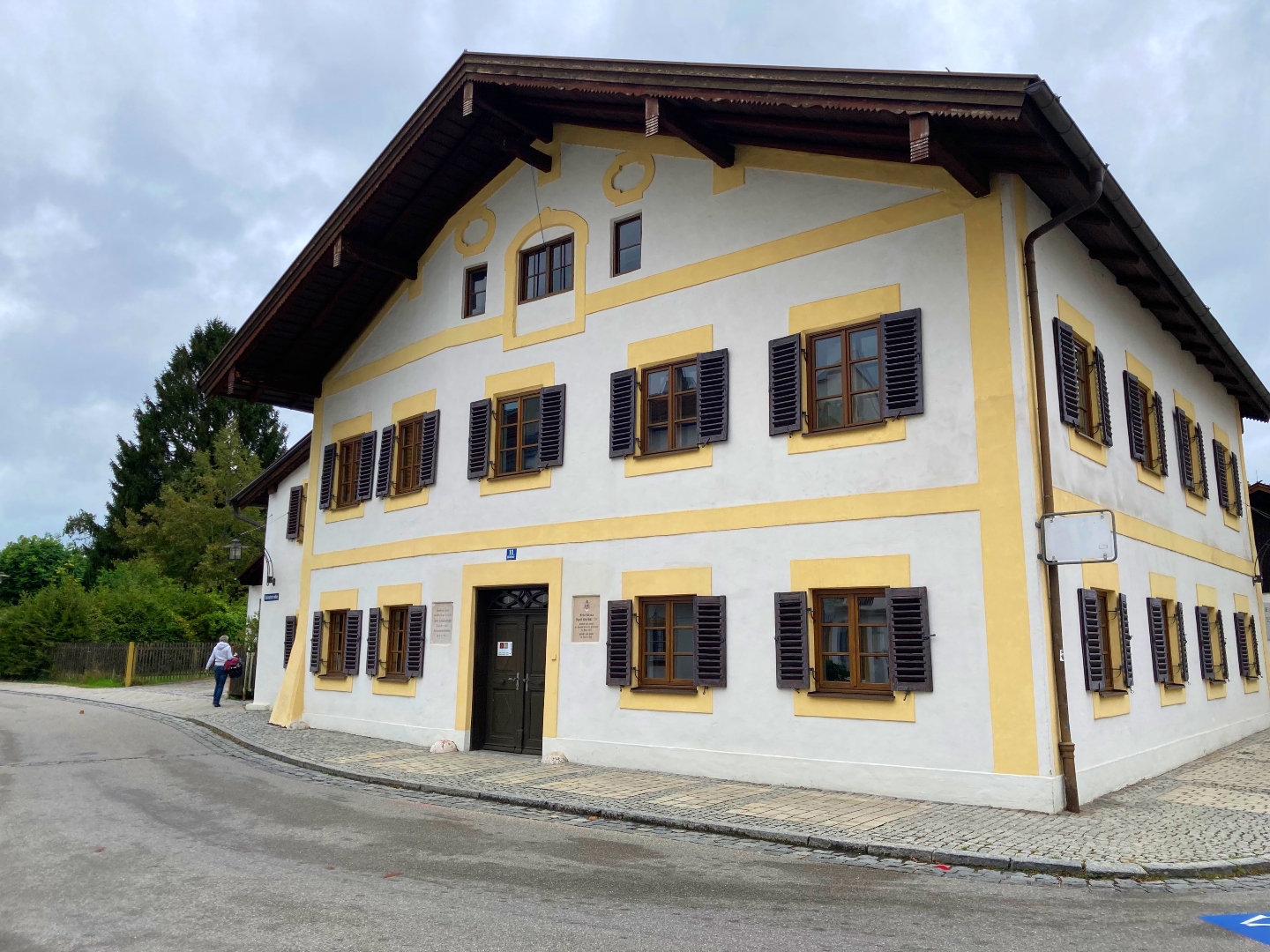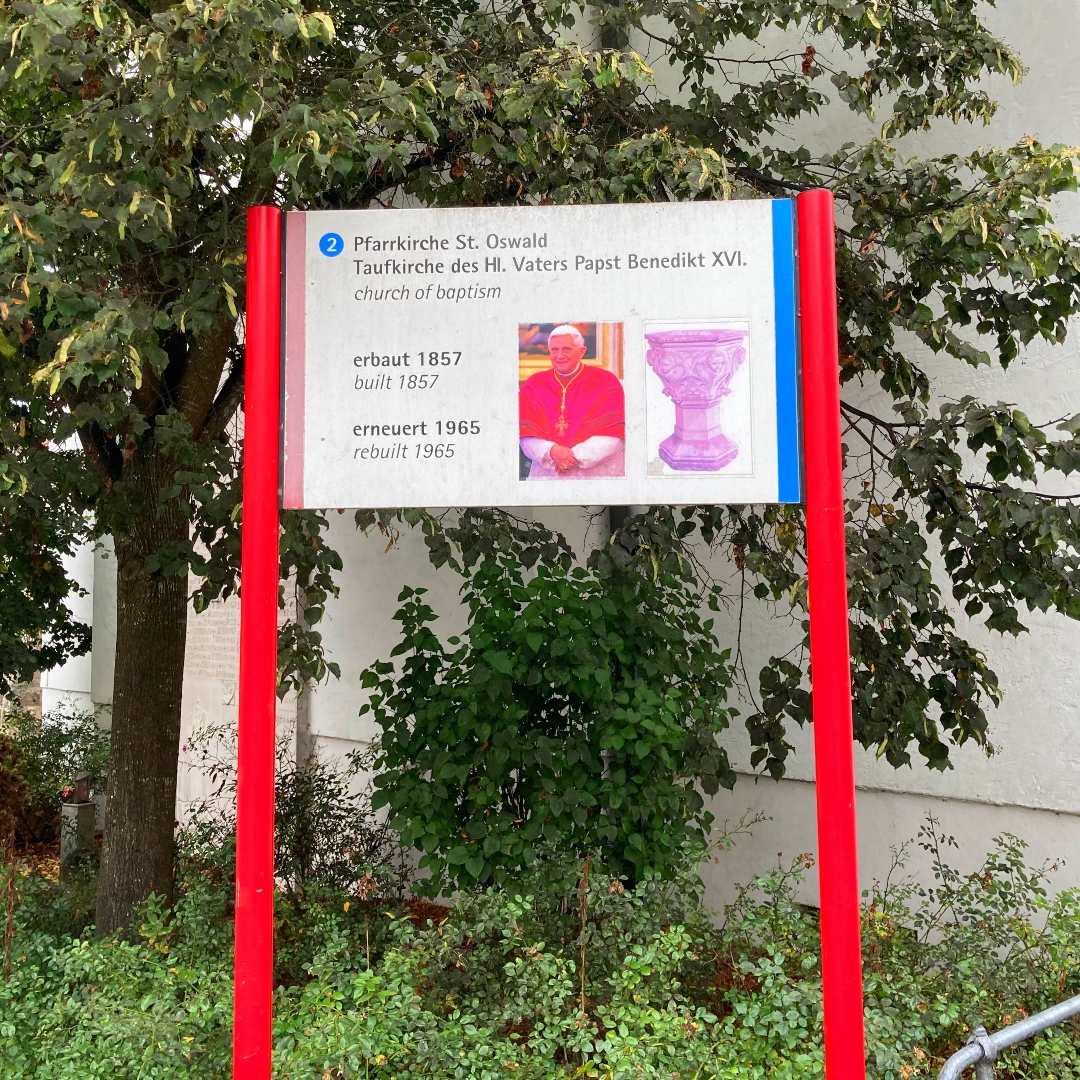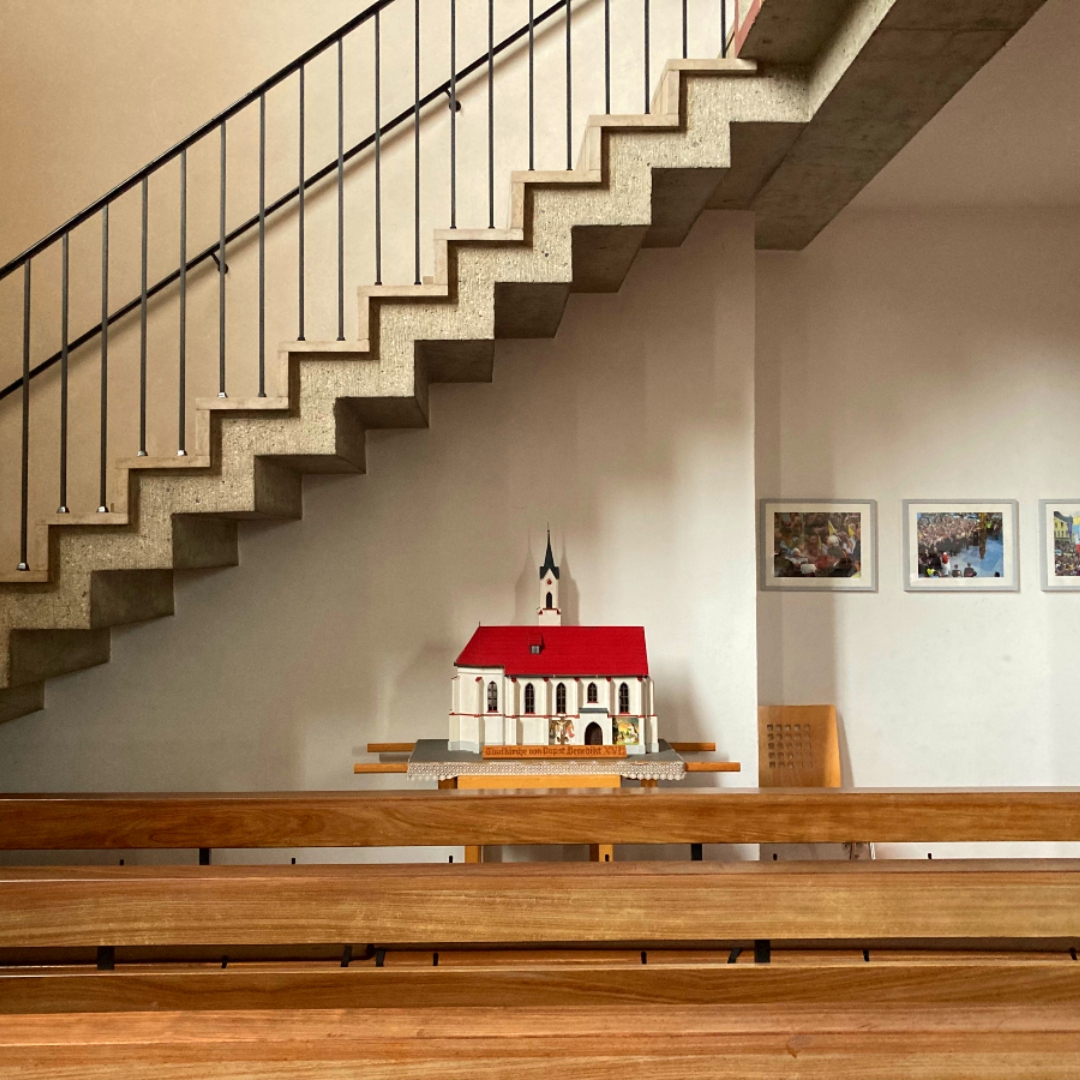I felt it rising in successive waves, even before the crowd leapt to its feet and the cries of “Il Papa!” began. Love. I had sensed it before, of course, with family, during Mass, in Adoration. But it had never washed through me carrying such purity, such humility, such simple joy.
The passenger, in a white automobile that weaved its way through St. Peter’s Plaza on that cold but clear late-April day in 2005, beamed his smile and waved like a provincial child enjoying his first ride at an amusement park he never expected to visit.
Those of us in attendance rode his surges of love like experienced surfers. But I asked myself, “Who is this man?” He presented quite a contrast to the impression I had gleaned from some of the Benedictine monks at the Iowa basilica where I served as an informal oblate.
I had heard about a stern taskmaster, a strict enforcer of magisterial teaching, an incisive theologian, a very different portrait from the palpable sweetness I felt emanating from the person who descended from his car and ascended to the dais.
In recent weeks, my son had described him as “a good choice to bat cleanup for the pope whose act no one wants to follow.”
We were there that day solely by the workings of Divine Providence. Our travel plans had solidified almost two years before, when my son and his fiancée expressed a desire to see Europe, once he passed Part I of his medical-school boards. When I offered to take them if they would make it a pilgrimage, my husband decided to come along. None of us knew then that our beloved, majestic world missionary pope, now Saint John Paul II, would return to his heavenly home before we undertook our journey.
As we packed our bags for the trip, we had been following daily proceedings in the Sistine Chapel for more than two weeks, and were still uncertain whether there would be a new pope in the Chair of Saint Peter when we reached Rome.
Only the day before this audience, when we arrived at Da Vinci airport, we had learned from our Roman guide that her brother who worked at the Vatican would be able to get us tickets for Pope Benedict XVI’s first outdoor public audience in Saint Peter’s Square.
I have a vivid recollection of every word that Pope John Paul II spoke at my first papal audience in 1995. He was dynamic then, in full vigor. He stood at the microphone for hours. He presented his homily himself, four times, speaking fluently in four different languages.
I recall not a word of the brilliant theologian Pope Benedict XVI’s first papal address to a crowd of pilgrims in St. Peter’s Square in 2005. I just remember the overwhelming force of his love.
In September 2022, I had the opportunity to develop a few more insights about who Pope Benedict XVI—a reticent man, a highly influential intellectual, the humble confidant of his charismatic predecessor—really was.

Just after dawn on a frigid German morning with a blustery wind, my group of Oberammergau pilgrims walked through the few narrow streets of Marktl am Inn into its central platz, to view Joseph Ratzinger’s birthplace. We toured the small, charming Saint Oswald’s church where he was baptized on the same day he was born: Holy Saturday, April 16, 1927.

This is where it all began, the overflowing well, the place where his cup of love was first filled.
I hoped I might find some answers to how a sensitive child and brilliant adult lived through so many decades of ministering to the same human frailties; and through so much social change. How did he preserve his deep faith in God’s love, and his radiant transmission of that love, throughout his entire lifetime?
How did he accept the murder of his cousin with Down’s syndrome, by the Third Reich? How did a sensitive teenager who was already deeply aware of his vocation live through repeated encounters with Nazi evil—beginning with his first, but not last, conscription into their military forces at the tender age of 14?
On the left wall of Saint Oswald’s church, as one enters the tiny entryway, is hung a glass case clad in steel. It displays new parish “arrivals” for the current month, baby pictures of the infants most recently baptized into the parish. On the right wall hangs a sturdy matching case that features funeral program photos of recent “departures.”
Joseph Ratzinger’s own last words complete the circle: “Jesus, I love you.”
May perpetual light shine upon His Holiness Pope Benedict XVI, and may his lifelong lessons about the healing power of love continue to enlighten our troubled world.

Copyright 2023 Margaret Zacharias
Photos copyright 2022 Margaret Zacharias, all rights reserved.
Thank you, Margaret. Benedict was a wonderful man. A philosopher friend – an atheist – told me that Benedict had one of the finest minds in Europe. His books on Jesus are spectacular – almost every page has an invaluable insight. We have been blessed to have wonderful popes throughout my lifetime (I’m 75)!
Thank you so much, Arthur. I heard many wise Catholic priests and journalists, who were far better acquainted with him, comment over the past week about Benedict’s exceptional intelligence, “He was always the smartest man in the room.” I appreciate those gifts. As a simple convert, I felt called to share here my emotional reaction to Benedict’s living presence at his first public audience. It seems to me that an important facet of his brilliance was discerning the truth of St. Paul’s counsel: that worldly things — and even some heavenly things — pass away. Benedict XVI lived the truth that God’s love is the one thing that will never fail (1 Corinthians, 13:1-13). I certainly agree with you that we have been blessed with remarkable popes in our lifetimes. Peace.